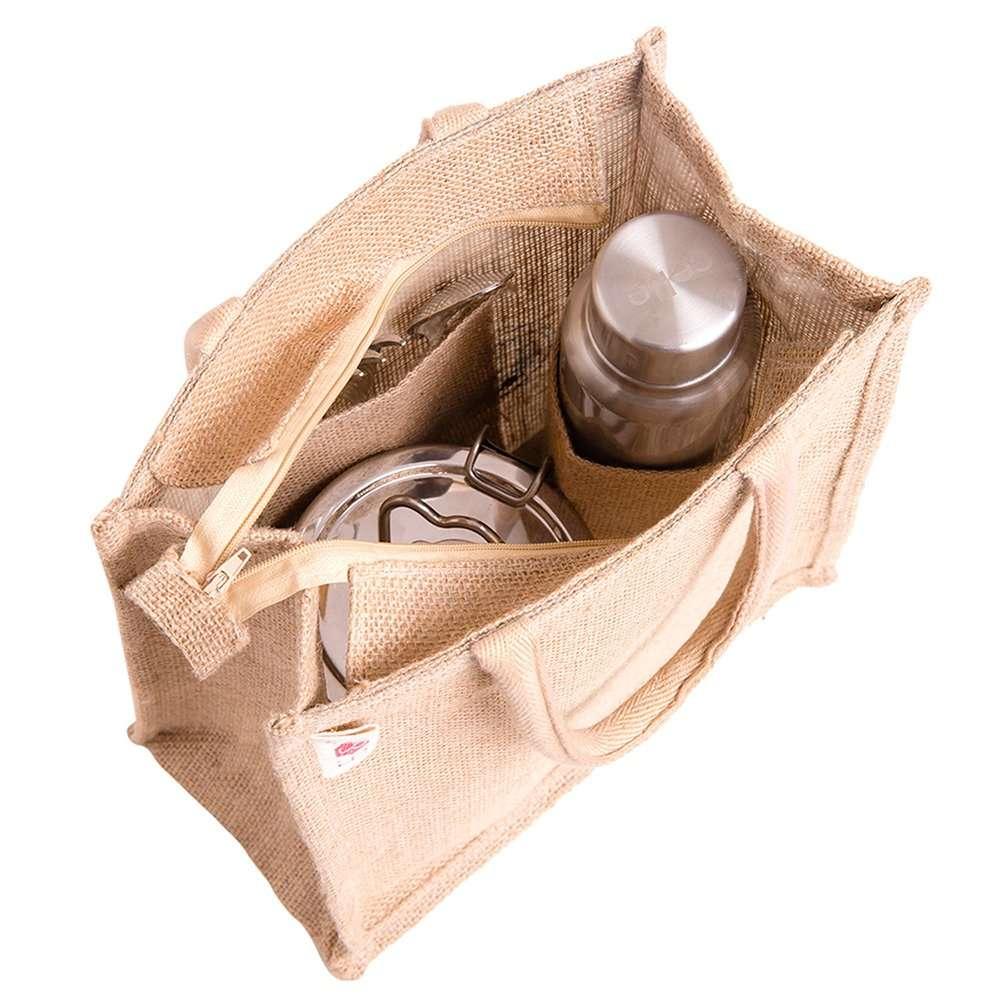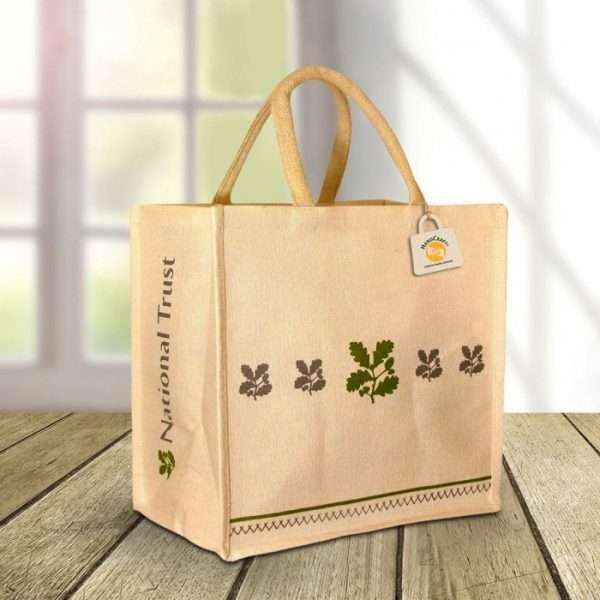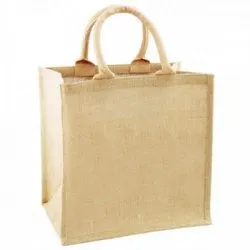Juco Lunch Bag
₹379.0
-Made up of Juco
– Light beige in color
– It’s completely customized for holding lunch bags, cutlery, water bottles, and daily essentials which makes it the perfect choice for office, college, and school-going people.
– Is a robust and resilient and adaptable fabric that is 100% recoverable and is utilized to create jute & juco bags as a result
– Is tightly woven and sewn to create the free-standing quality of jute & juco bags, which is why many consumers use them as carrier bags
– Require little to no maintenance which makes them an easy and convenient option for daily use
– Is way stronger than normal cotton threads and if properly used can last up to 4 years
– Is spacious and minimalistic
– Has a robust, rustic appearance to it
– Eco Friendly and sustainable
- Description
- Additional information
- Reviews (0)
- Q & A
- Sustainability Remark
- More Offers
- Store Policies
- Inquiries
| Material | JUTE |
|---|
You must be logged in to post a review.
Q & A
Jute products are often considered to be sustainable for several reasons:
Renewable and Biodegradable: Jute is a natural fiber derived from the jute plant, which is primarily grown in the Indian subcontinent. It is a renewable resource as jute plants can be harvested annually. Jute is also biodegradable, meaning it can naturally decompose without causing harm to the environment.
Low Environmental Impact: Jute cultivation requires minimal pesticide and fertilizer use compared to other crops, reducing the environmental impact associated with chemical applications. Jute plants are also beneficial for the environment as they absorb large amounts of carbon dioxide and release oxygen, contributing to reducing greenhouse gas emissions.
Water Efficiency: Jute plants require relatively low amounts of water compared to other crops like cotton. This makes jute a favorable choice in areas where water resources are limited or during drought conditions.
Versatility and Durability: Jute fibers are strong, durable, and have good insulating properties. These characteristics make jute products suitable for a wide range of applications, including textiles, bags, packaging materials, and home furnishings. The longevity of jute products reduces the need for frequent replacements, which can help minimize waste generation.
Economic Benefits: Jute cultivation and production provide livelihood opportunities for many farmers and workers, particularly in developing countries where jute is grown. By supporting the jute industry, consumers can contribute to the economic development of these regions.
However, it's worth noting that the sustainability of jute products can also depend on other factors such as the manufacturing process and the overall supply chain. For example, the use of environmentally friendly dyes, responsible waste management, and fair labor practices are essential to maximize the sustainability of jute products.
By considering these factors and making informed choices, consumers can support the sustainability of jute products and promote environmentally conscious practices in the industry.
General Inquiries
There are no inquiries yet.





Reviews
There are no reviews yet.